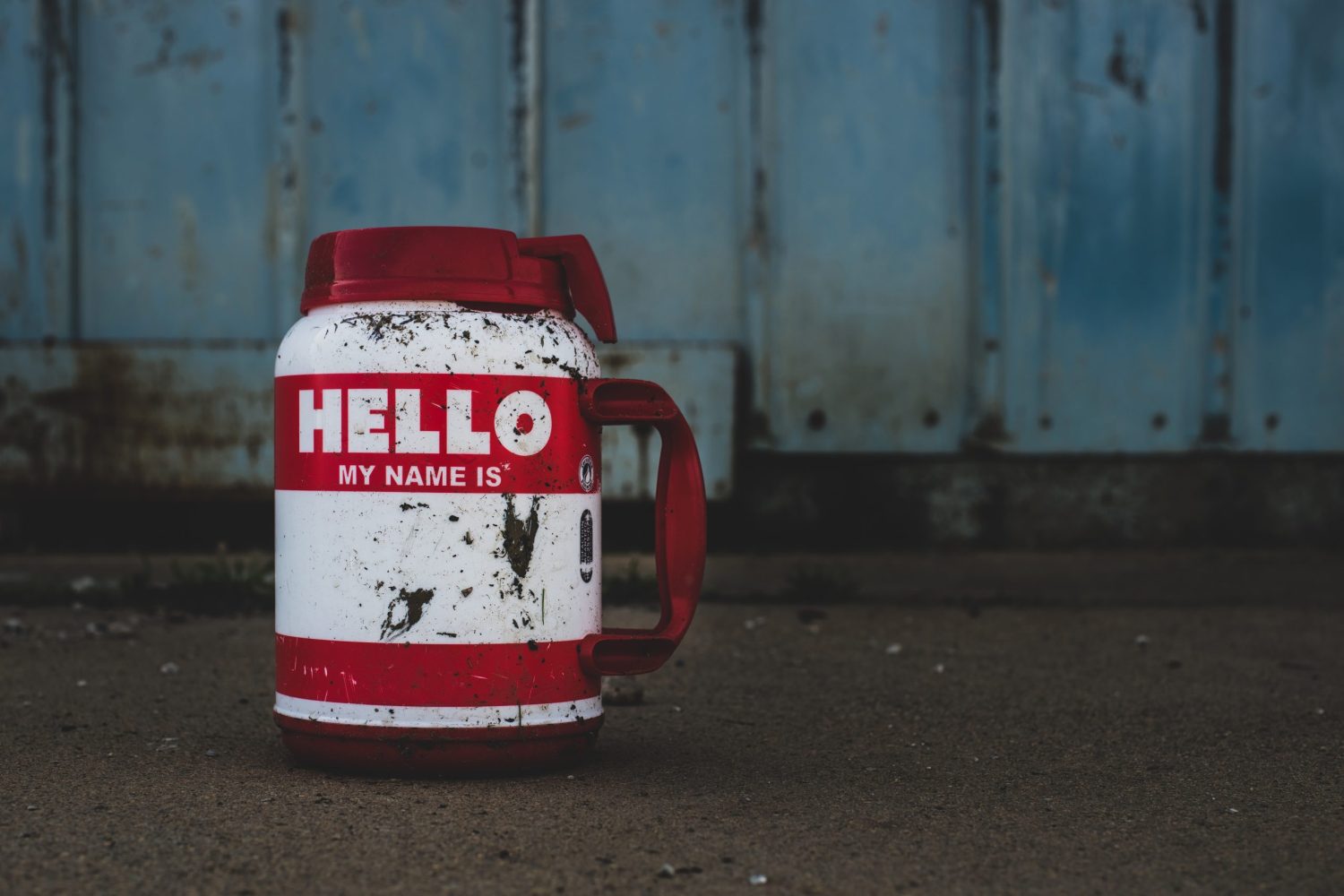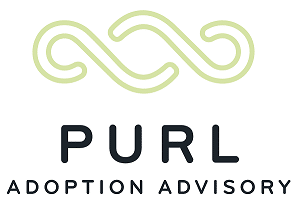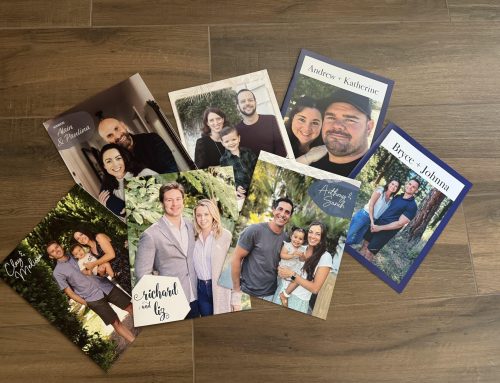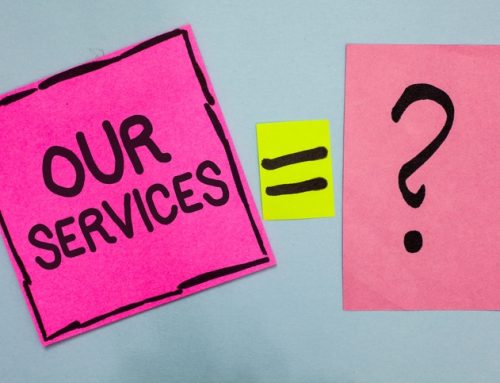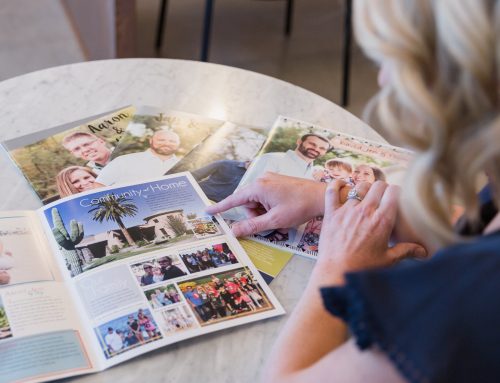One area I went wrong as a prospective adoptive parent was my thoughts and process on naming an adopted child. My perspective at the time of our adoption journey was that this was going to be my child and I should get to name my child. The adoption professionals we worked with didn’t give me any education on this area, and instead said the name the expectant mother gave the child didn’t really matter because we could change the name after finalization. Honestly, I had thought about what I might name my child since I was a child, and so it didn’t even cross my mind to consider naming a child what the expectant mom wanted or collaboratively coming up with names. In both our disrupted adoption and our adoption of our daughter, we had family names that we wanted to include. So in both situations, while I discussed the naming with the expectant mothers, I did not focus on how my child might feel about having a different name on their original birth certificate than what was on there after our adoption finalization.
Why My Thoughts Are Entirely Different Now
I think it is important to understand the context on the process of the issuance of a birth certificate and the history of adoption to understand better how my perspective on naming an adopted child has changed dramatically.
The Original Birth Certificate
In the first hours or days after a delivery of a child, the hospital where the child is born will typically send someone from vital records to the expectant mother’s room and require her to complete information necessary for the child’s birth certificate. At that time, the mother who gave birth to the child will have the opportunity to put the child’s name on the birth certificate, if she wishes. This happens regardless whether she is intending to make an adoption plan for her child. She may choose to put a name she has selected, a name the prospective adoptive parents have selected (typically if that has been decided and discussed), or she may wish to leave it as Baby Boy/Baby Girl Doe (her last name or the last name of the expectant father). The mother who gave birth to the child will be listed as the mother on the original birth certificate, and she may or may not include the name of the birth father. An original birth certificate is then generated with the information provided.
Keep in mind that the expectant parent has to be the one to sign and complete the birth certificate, and even if the expectant mother would like to list the adoptive parent(s) on this form, this will make the adoption legally difficult if the adoptive parents are listed here instead. We recently had this issue arise in a Purl Family adoption and we want to make sure everyone understands that the legal process of adoption could be impacted if the expectant, birthing mother doesn’t sign this form. So, if the hospital asks you to complete this form, please talk with your advisor or the adoption professional you have matched with. I have seen some adoptive parents be in the room and assisting the expectant mother on completing the form, but you cannot sign this form on her behalf.
The Amended or Replaced Birth Certificate in Adoption
If that expectant mother decides to make and complete an adoption plan, the name given on that original birth certificate is changed at the finalization of an adoption and typically a new amended birth certificate is issued for the child. That new birth certificate usually replaces the original birth certificate entirely. In the amended birth certificate, the adoptive parents are typically listed as the birth parents of the child. Legally, the adoptive family has the discretion to decide on the child’s name that is listed on the amended birth certificate, and in most adoptions, minimally the last name is changed to that of the adoptive family. The original birth certificate is typically sealed and made unavailable to the public and, in many states, unavailable to the adopted person, even as an adult. After the state seals the original record, the only birth certificate available to the adopted person is the amended record that lists the adoptive parents as birth parents.
Understanding the History of Adoption and our Current Laws Changed My View on Naming/Birth Certificates
My view on naming an adopted child and birth certificates changed dramatically when I listened to adoptee voices on this topic who struggled with knowing their adoptive families changed the names given to them by their birth family. I also learned more about the origins of even some of our current laws on an adoptee’s access to their original birth certificates. There is a sordid history of adoptions in our country, as described in
American Baby: A Mother, A Child and the Shadow History of Adoption particularly in the post-war, baby boom era, where so many women were forced to relinquish their rights and adoptions were almost always clouded in secrecy and closed. In fact, the extensive research within this book shows that the same entities that profited off these women’s involuntary adoptions were part of drafting of the laws to ensure that the original birth certificates weren’t made available to adoptees. If you haven’t read this book and you are connected to adoption, I highly recommend you go out and get it (or click the link above, not a sponsored link) – NOW!
The Last Thing an Expectant Mother Can Do For Her Child
Moreover, naming a child is one of the last things that an expectant mom can do for her child she places for adoption. The adoptive family will get to make ALL decisions when it comes to child rearing after placement, but naming the child at birth is one right that the birth parents have had, at least as it relates to the original birth certificate. It can be a complicated discussion with a child through adoption later in life if the adoptive family changed the name given on the birth certificate entirely. So once again, this is an area I think families need to think of the perspective of how their child might feel about this topic when they are older and can understand more about their adoption. Names can also have meanings culturally and historically for birth families, so it is important to consider those factors as well when deciding on a name and deciding whether to change a child’s original name. Regardless if an adoptee wants to have contact with his/her birth family, they often want to have details about the adoption and want to see the records associated with their adoption. Therefore, the birth certificate is bound to be something that adoptees will want to see and understand the facts surrounding regardless their feelings around openness. So adoptive parents need to be prepared for this discussion with their child through adoption and feel comfortable that the choices they make at birth are ones that they will still feel comfortable with years after.
Prospective Adoptive Parents Should Take Great Care in Deciding To Change a Child’s Name
For these reasons, we encourage our Purl prospective adoptive families to take great care when considering whether to change the first or middle name of the child through adoption if a birth family has named the child specifically. We encourage them to consider honoring all or part of the name given by the expectant parents, or collaboratively coming up with names with the expectant parents before the original birth certificate is issued. In fact, if there is any openness between the expectant family and the prospective adoptive family before the birth or around the birth, we encourage a dialogue specifically about the name of the child. If it doesn’t come up naturally, I typically recommend my Purl families try and broach this subject before birth and come up with a list of names that they like. Even if they don’t have contact directly with the expectant parents, they can seek feedback about names from the expectant mom through the adoption professional, and maybe even try to select either a first or middle name together. Don’t get me wrong, I remember how I special it felt to be able to consider names for my child, something I had dreamed about for decades. I know you may want to honor family members by naming them after them, but is important to remember that this is different than naming your biological child – this is adoption. There are more factors and more people involved and your child may be named something you would never have considered yourself. If you follow this guidance, you may not get to use that name you dreamed about for decades, but I promise you, you will love your child no matter what, and whatever name they have will become your favorite because its your child’s name. A great article discussing naming an adopted child, and strategies to discuss this before birth, written by one of our partners is found
here.
In many of the adoptions I have been apart of over the last six years, the birth family and adoptive family have selected the name of the child together, or the adoptive families have including the birth family’s chosen name in some way. Sometimes the name is included either by keeping the name altogether, using the given first name as a middle name, or some variation of those circumstances. But please, please PLEASE, keep your mind open that it may be the best interest of your child to NOT have two different birth certificates with two completely different names. And keep in mind that you might be like me, the name might have been REALLY important to you at the time of birth, but once you really understand adoption and its nuances, you may feel completely differently. Prospective adoptive parents need to understand that adoption does come with loss and often comes with struggles relating to identity. This is just another area that can create more concerns with identity in an adoptee. Prospective adoptive parents need to center their child’s needs in this area, and consider whether there is a way to minimize more pain associated with their adoption.
But one thing to note, some birth mothers may not want the name they choose to be included in the name after an adoption. Instead, they might prefer to have that name be the one they use alone. That is why it is helpful to have a discussion about the child’s name before the birth or at least before the birth mother completes the vital information at the hospital. If it is not possible, we encourage prospective adoptive families to get feedback from the placing agency or attorney about the birth mother’s wishes, if known, before an adoption is finalized. That way, even if the name is changed due to the birth mother’s wishes, at least the adoptive family can explain those facts to their child when they are old enough to understand.
Be An Advocate For Your Child – Help Secure their Original Birth Certificate
Currently, there are still limitations in many states on an adoptees’ access to their original birth certificate. In some states and settings, members of the triad are able to obtain a copy of the original birth certificate. In others, that information is sealed and kept confidential by the state’s registrar of vital records and can only be obtained by a court order. In other states, the original birth certificate can be obtained with the consent of the birth family, adoptive family and adoptee or by one of the them individually, but sometimes only when the adoptee reached majority. Interestingly, in many states, the original birth certificate is available to the involved adoption professionals BEFORE the adoption is finalized, but sealed afterwards. That was the case in Arizona, the original birth certificate was available to the adoption agency we adopted through, and even to our attorney, but was never provided to me and I did not know I could even get it. It was only years later when I understood more about adoption that I sought a copy of my child’s birth certificate. I wasn’t able to get a certified original birth certificate, but I was able to secure a copy of it for my child’s records. So as an adoptive parent, you need to understand the laws in your state (and the state where the child was born), and do whatever you can to secure the original birth certificate for your child. Ask the adoption professionals who you are working with if it is possible for you to get a copy of it for your child, because it may be impossible if you wait until after finalization. For more information about different state’s laws on access to adoption records, including the original birth certificate, visit the
Child Welfare Information Gateway. To learn more about adoptees’ efforts to change the laws on birth certificates, please visit the
Adoptee Rights Law Center.
Become a Purl Family for More Support and Education Like This
As always, Purl Families get personalized support on topics like this and so many others during their adoption journey through their customized and group coaching calls. Our Founder didn’t get education like this when she adopted, and that’s why she believes every prospective adoptive parent hoping to adopt should. We are currently taking on Purl families of all makeups, and our pricing will go up slightly in June, so schedule your initial consultation by completing
this form. We are specifically in need of diverse families, families with open preferences on race, drug/alcohol exposure and mental illness, and families from Arizona, Texas and Florida. Learn more about our pricing and services
here.
